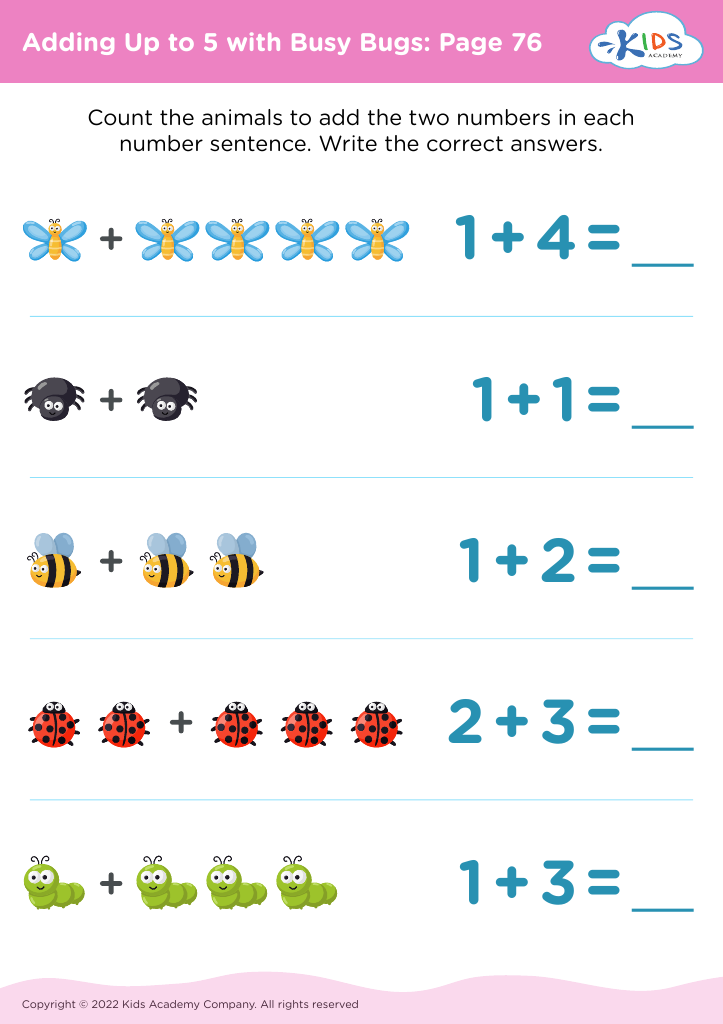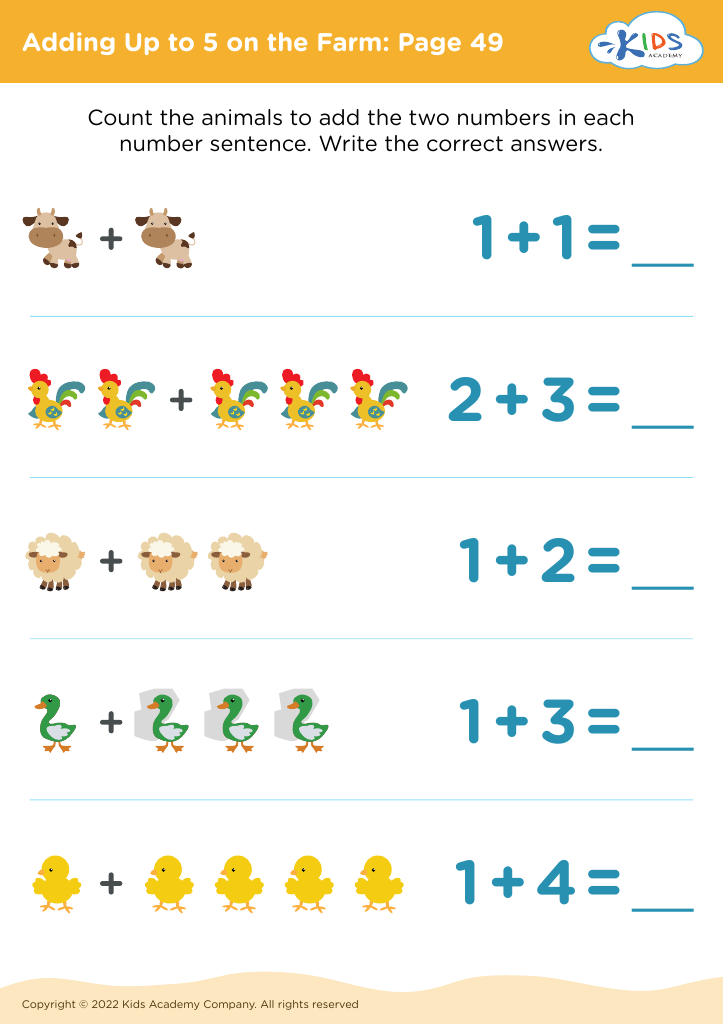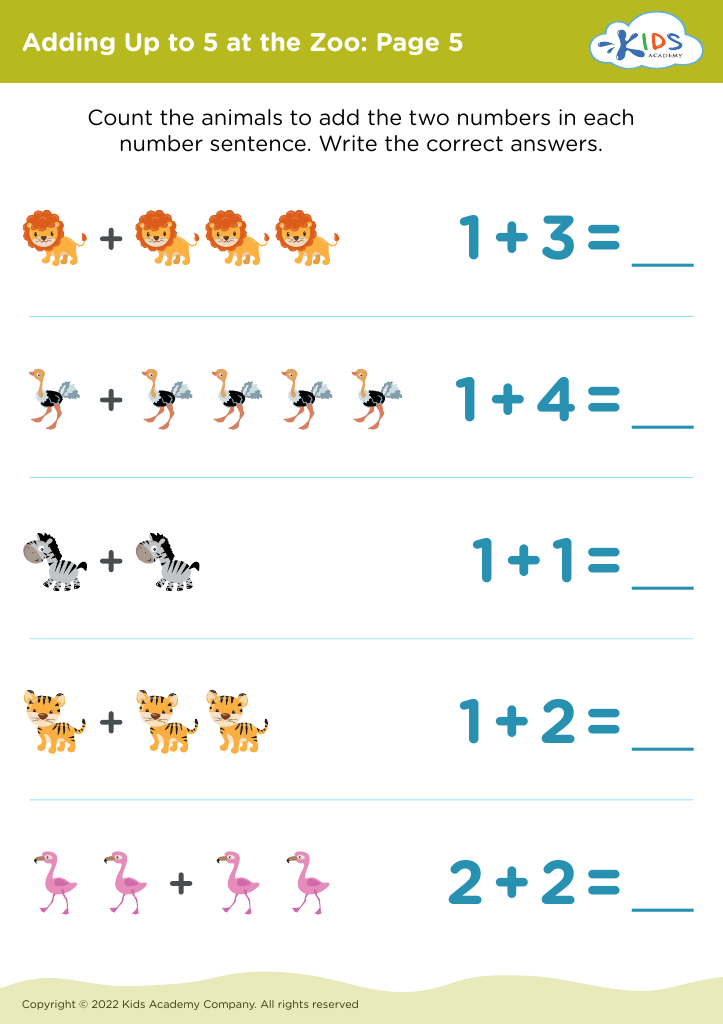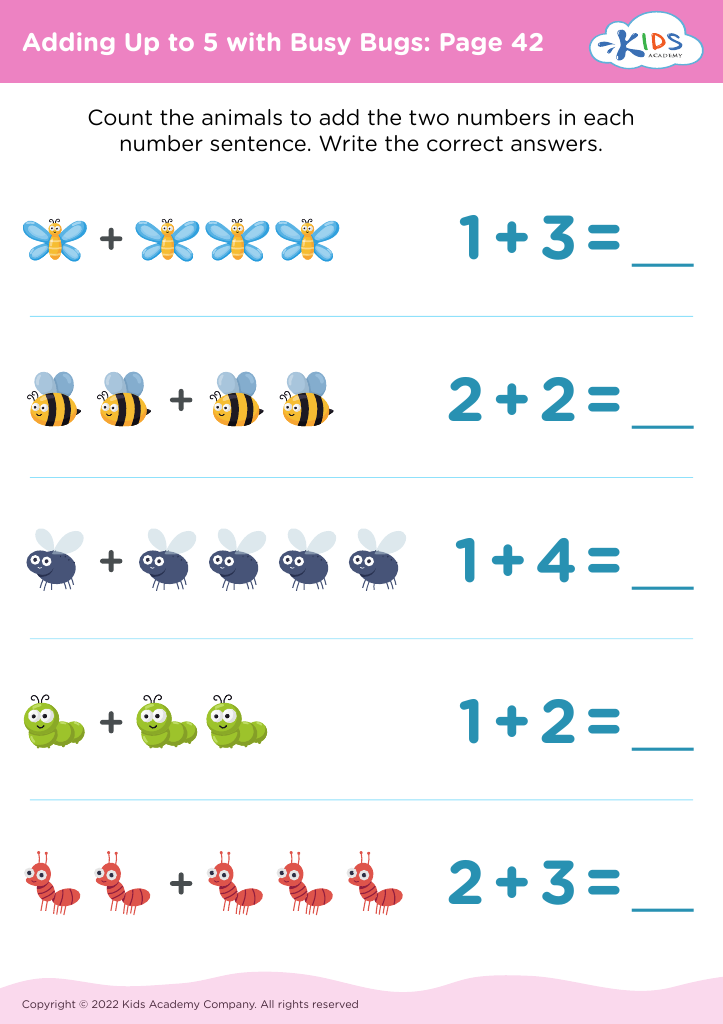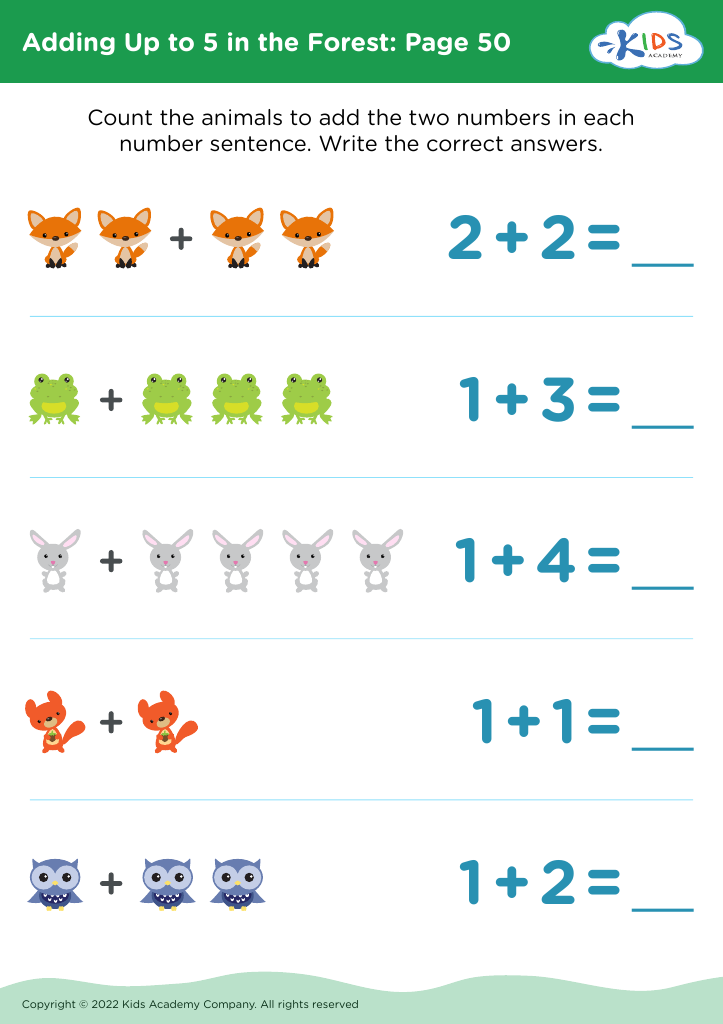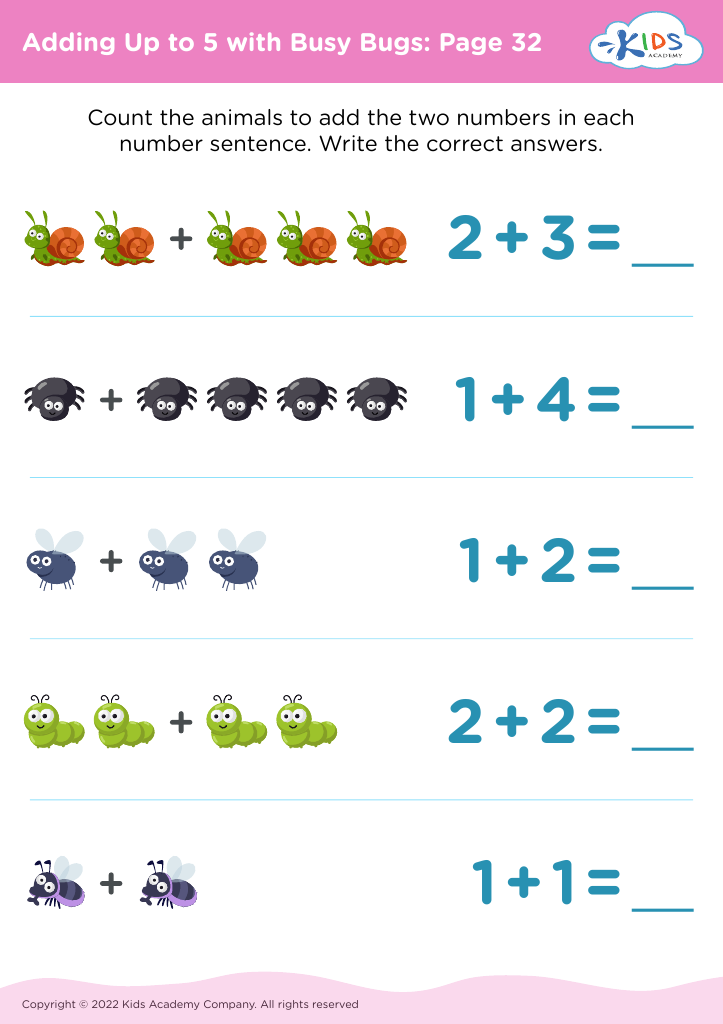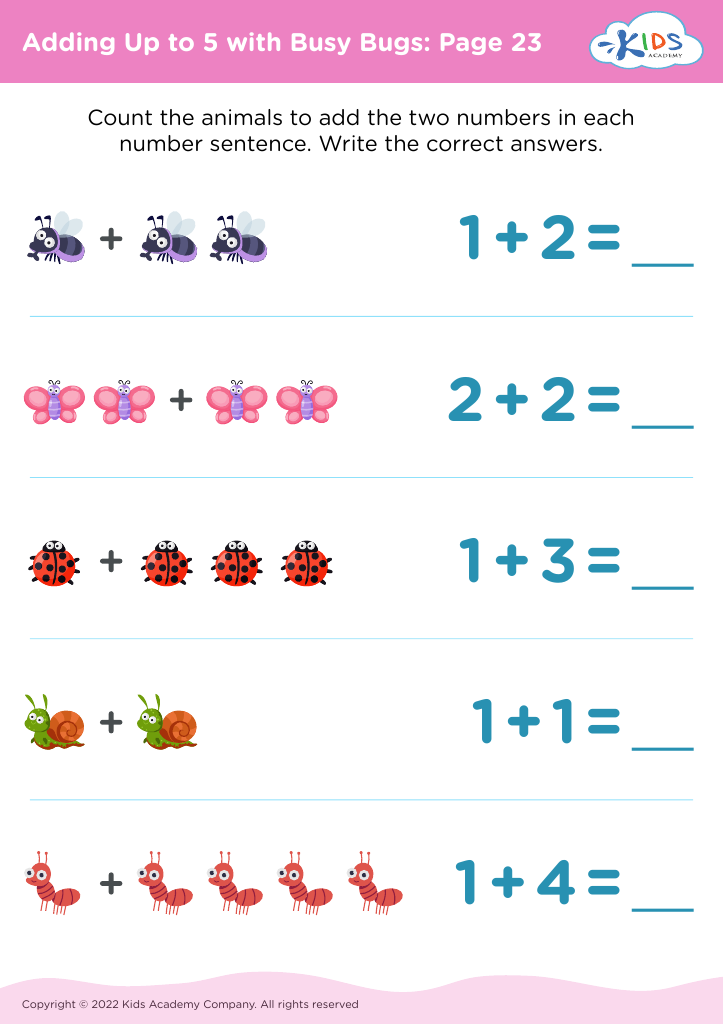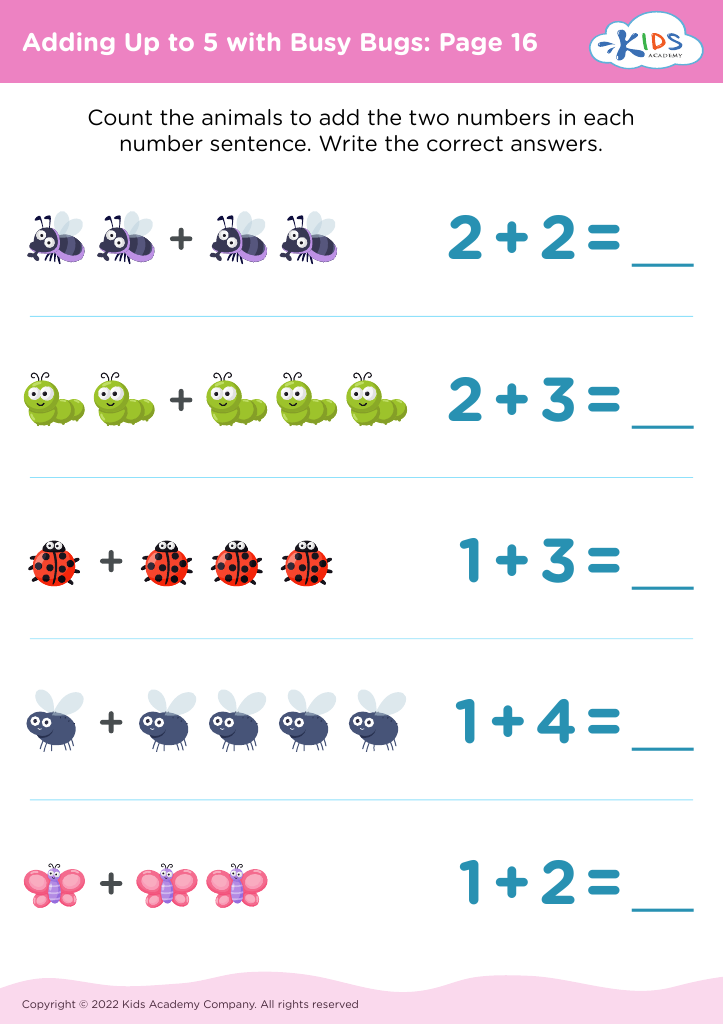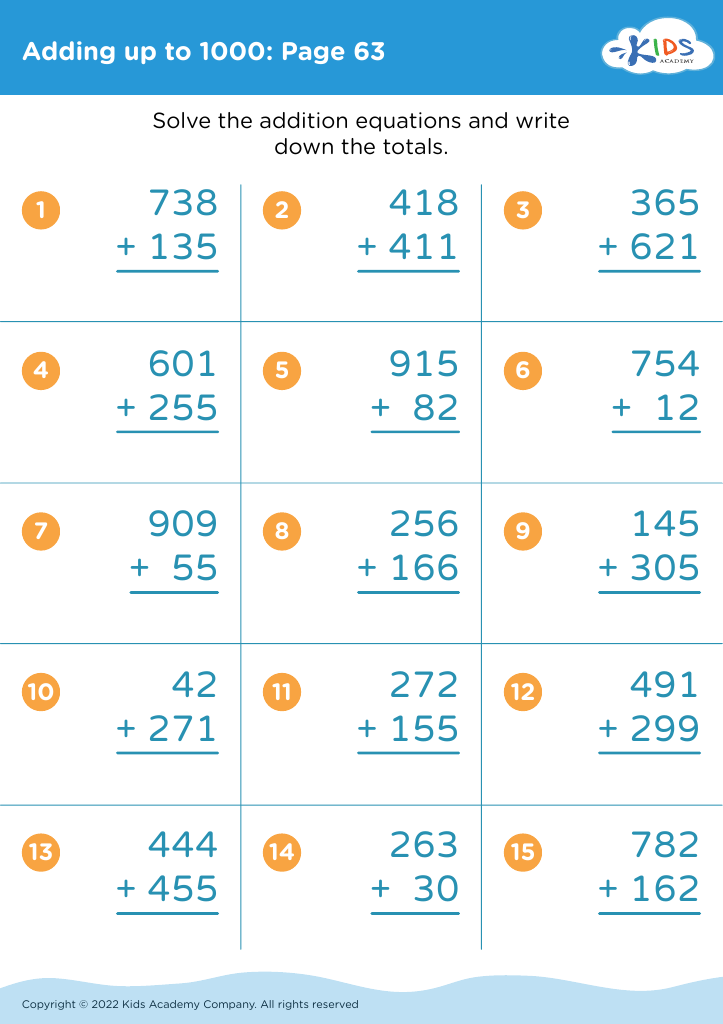Basic math concepts Addition & Subtraction Worksheets for Ages 3-9
13 filtered results
-
From - To
Explore our engaging Basic Math Concepts Addition & Subtraction Worksheets designed specifically for children aged 3-9. These worksheets provide a fun and interactive way for young learners to grasp essential math skills through colorful illustrations and easy-to-follow exercises. With a variety of activities, children will develop their understanding of addition and subtraction while enhancing their problem-solving abilities. Perfect for both classrooms and home learning, our resources cater to different skill levels, ensuring every child can progress at their own pace. Start building a strong mathematical foundation today with our user-friendly worksheets that make learning enjoyable!
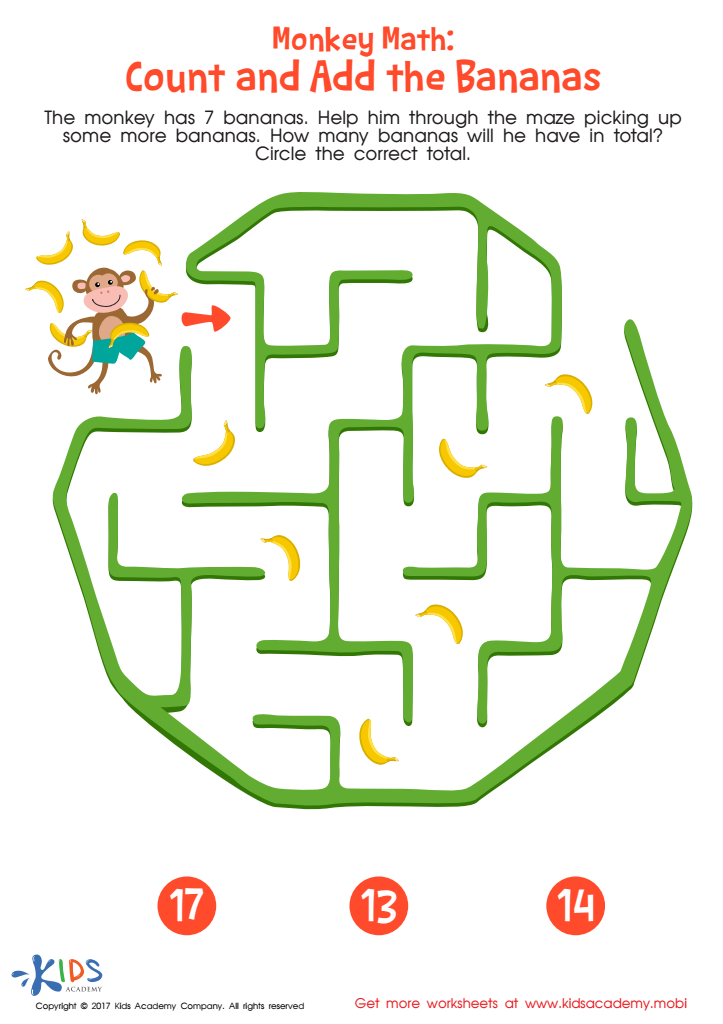

Basic math concepts such as addition and subtraction are foundational skills that significantly impact a child's cognitive development and everyday functioning. For ages 3-9, these skills play a crucial role in children's ability to understand their world and solve problems.
Firstly, mastering addition and subtraction facilitates essential reasoning abilities like logical thinking and analytical skills. When children learn to add and subtract, they develop an early sense of numbers, enabling them to recognize patterns and relationships, which are critical for more complex mathematics later on.
Secondly, these basic math concepts help foster a child's confidence and independence. Being able to perform simple calculations enhances their everyday experiences, whether it’s keeping track of items, understanding time, or managing money.
Moreover, addition and subtraction serve as an excellent opportunity for interactive learning between parents, teachers, and children. Engaging in fun, hands-on activities promotes collaboration and builds a supportive learning environment.
Ultimately, a solid grasp of addition and subtraction not only lays the groundwork for future academic success but also equips children with vital skills they can apply in real-life situations, thus shaping well-rounded, capable individuals. Parents and teachers should prioritize these concepts to support overall child development.
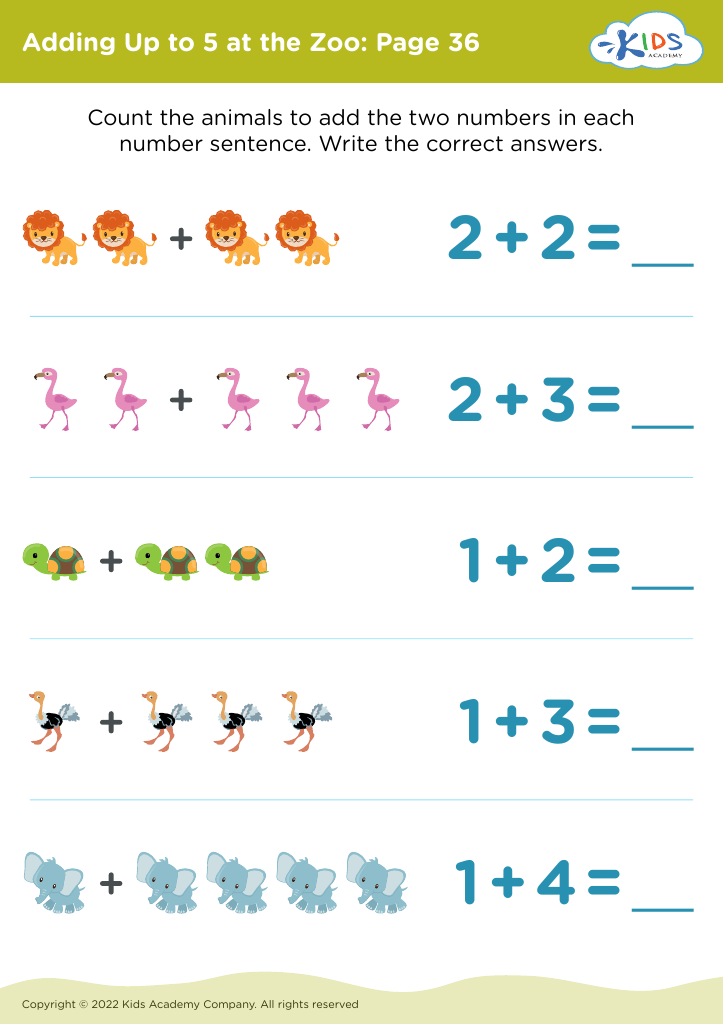
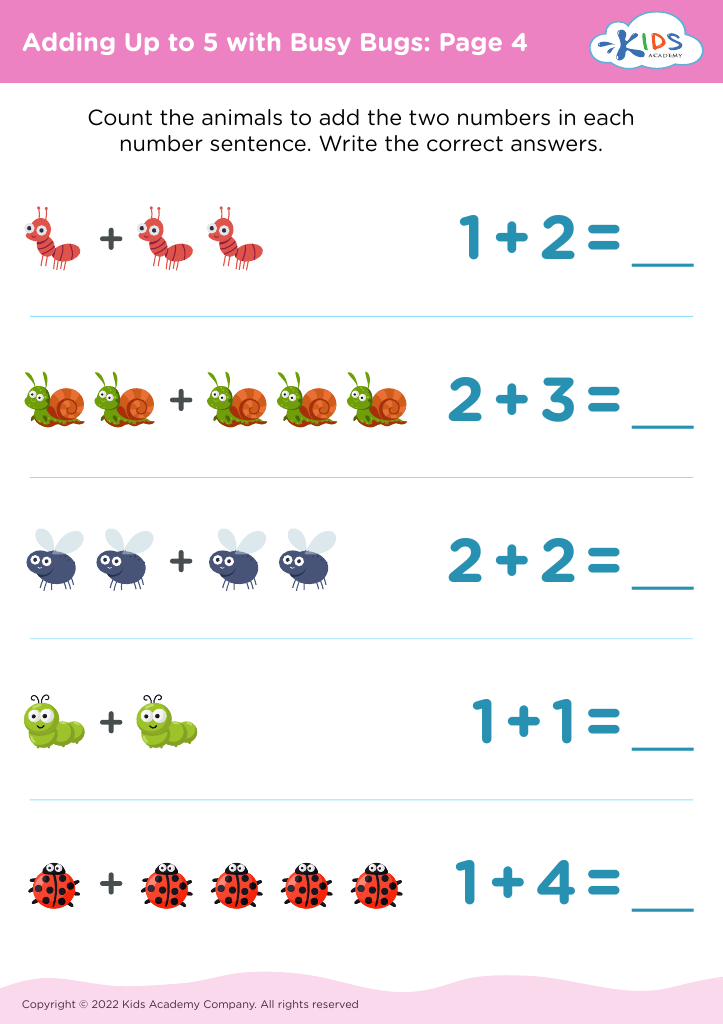
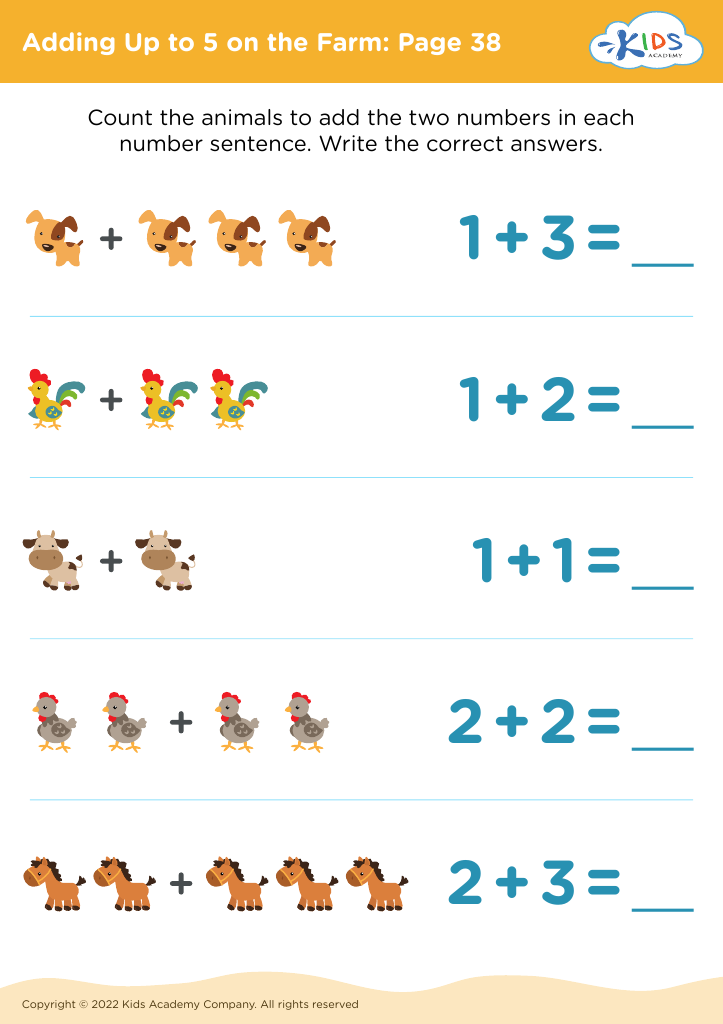
 Assign to My Students
Assign to My Students
